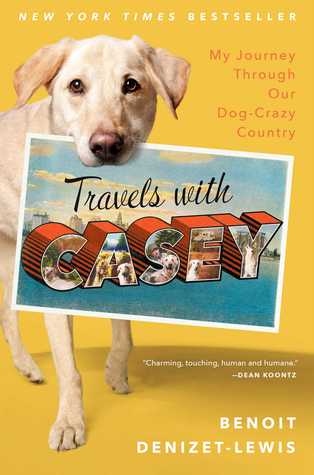The winners of the Goodreads Choice were announced this week. More than 3.3 million readers cast votes for their favorite books of the year.
Best Fiction
Winner:
Landline by Rainbow Rowell - 46,154 votes
My Pick:
The Storied Life of A.J. Fikry by Gabrielle Zevin - 19,818 votes
My Runner-Up:
Station Eleven by Emily St. John Mandel - 11,608 votes

This category was going to be a slugfest from the word go and it didn't disappoint. As I expected, Rowell's fans came out in droves, as did avid readers of Liane Moriarty, who came in second place. Zevin's novel came in third, better than where I thought it would end up.
Station Eleven came in ninth place, but it had an uphill battle since it was released in September, whereas the others had summer and spring publications. If anything, the fact that it didn't finish any lower is a testament to how well it was received in the short time period between publication and award nomination.
Redeployment, winner of the National Book Award, came in 14th place.
Best Historical Fiction
Winner:
All the Light We Cannot See by Anthony Doerr - 41,512 votes
My Pick: Same
This book is on dozens of best books of the year lists, has received universal acclaim and was shortlisted for the National Book Award. So it's no surprise that it cleaned house in the historical fiction category. Sue Monk Kidd's
The Invention of Wings and Ken Follett's
Edge of Eternity made solid efforts, but in the end, the World War II-era tale was the victor.
Best Mystery and Thriller
Winner:
Mr. Mercedes by Stephen King - 41,453 votes
My Pick:
The Silkworm by Robert Galbraith (aka J.K. Rowling) - 41,034 votes
419 votes. That was the difference between the gold and silver in this category. By the hair of it's chinny-chin-chin,
Mercedes took the top spot. While other books like Janet Evanovich's
Top Secret Twenty One and Tana French's
The Secret Place had decent votes, the proverbial air was sucked out of the category by
Silkworm and
Mercedes. I grew up on Rowling's writing, so I favored her writing, which is more of a detective mystery compared to King's novel, which has a more sinister tone. That isn't to say that I disliked
Mr. Mercedes, especially since it was on my TBR list at one point. My vote was more about which style I tend to prefer rather than the quality of writing.
Best Memoir and Autobiography
Winner:
This Star Won't Go Out by the Earl Family - 27,850 votes
My Pick:
Life, Animated by Ron Suskind - 1,131 votes
My Runner-Up:
As You Wish by Cary Elwes - 24,111 votes
Consider this category Exhibit A for the power of John Green's Nerdfighters. As I wrote on my previous
post, I was rooting for Ron Suskind's book, but suspected that it would not make it to the final rounds. When it was eliminated, I switched my vote to Elwes' memoir on the making of the 1987 film
The Princess Bride. Despite having a late publishing date, it did really well, likely from all the movie's large fan base. And yet, it didn't top a John Green-backed book about a cancer victim that helped inspire Green's book
The Fault in Our Stars. The lauded crematorium memoir
Smoke Gets in Your Eyes by Caitlin Doughty, which has appeared on a number of top book lists, came in eighth place.
Best History and Biography
Winner:
The Romanov Sisters by Helen Rappaport - 21,118 votes
My Pick:
Five Came Back by Mark Harris - 220 votes
My Runner-Up:
In the Kingdom of Ice by Hampton Sides - 7,203 votes
Some surprises here. I didn't see the Romanov biography winning at all and thought it would likely go to Karen Abbott's
Liar Temptress Soldier Spy or Bill O'Reilly's latest. I also didn't think
Five Came Back would only garner 220 votes, one of the lowest overall votes in the entire competition. Harris' book tells the story of five Hollywood directors, including Frank Capra, John Ford and William Wyler who served in the military during World War II. A relative of mine hardly reads or listens to books, but he was completely mesmerized by the audiobook of
Five Came Back. When it got knocked out in the later rounds, I switched my vote to Sides' highly-regarded Arctic tale.
There were some other interesting tidbits from the awards results as well...
• The book with the highest number of total votes wasn't
Landline, but rather Rick Riordan's
The Blood of Olympus, the latest in the
Heroes of Olympus series. It took home the gold in the children's category with 63,000 votes cast. Other big vote-getters included
City of Heavenly Fire, the latest
Mortal Instruments novel. It racked up more than 53,000 votes and handily won the young adult fantasy category. Diana Gabaldon's
Written in My Own Heart's Blood also got more than 50,000 votes and coasted to a victory in the romance category.
• The closest vote came in the nonfiction category, though the best debut author category was also very well contested.
To see a full list of the nominees and winners, click
here.


